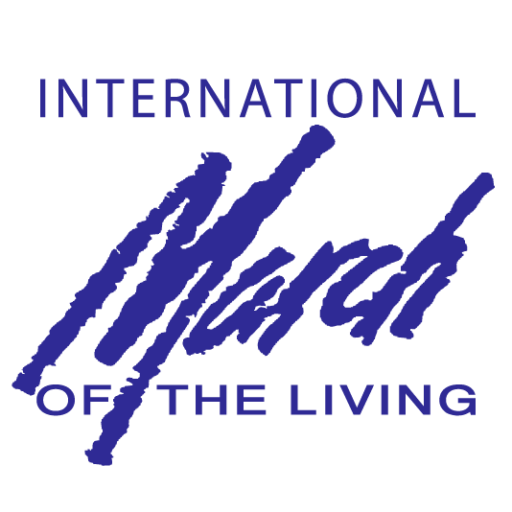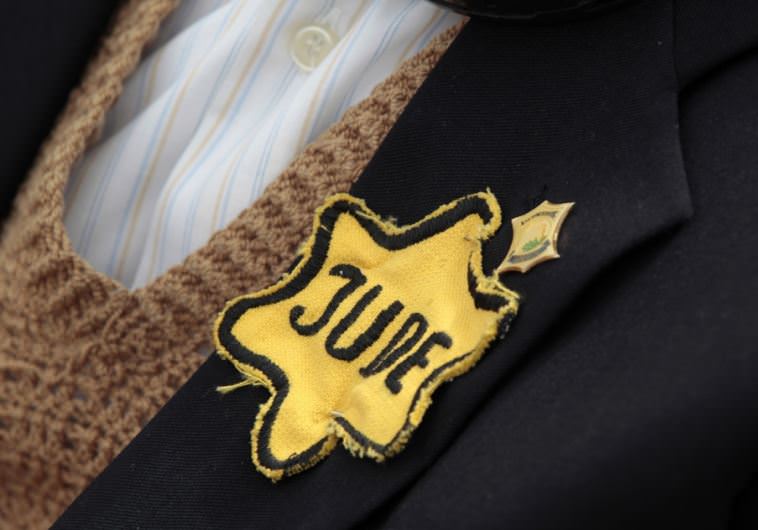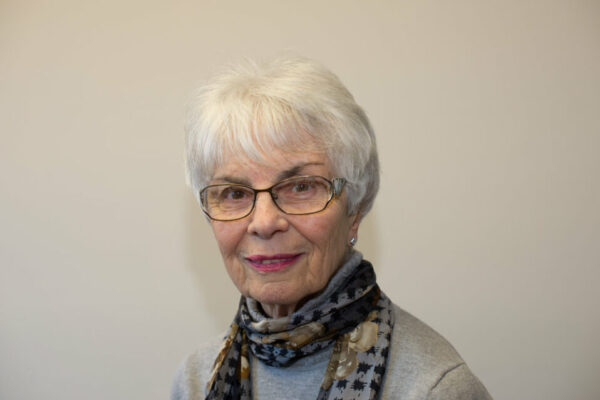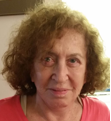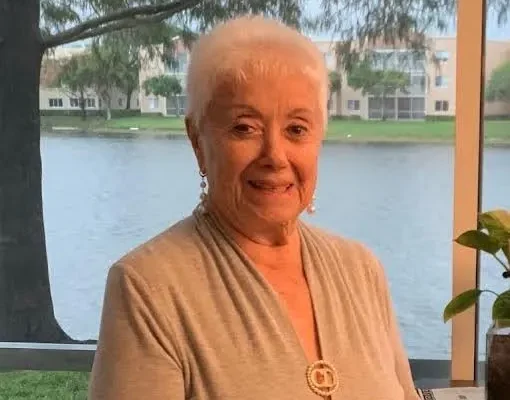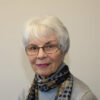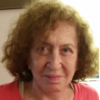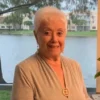A Holocaust survivor wears a yellow star during a ceremony at the Yad Vashem Holocaust Memorial in Jerusalem (photo credit: Reuters)
Notwithstanding the raw deal so many of them have received in Israel, Holocaust survivors by and large are happy to have a country to call home, and hundreds from all over the nation, speaking myriad languages, gathered at the Jerusalem Theater this week in a salute to Israel.
Some had been turned back by the British Mandate authorities when they tried to immigrate to Palestine after the Second World War. Others had been placed in camps in Cyprus, while others had been sent back to the European continent.
Despite such obstacles, others managed to arrive and had fought in the War of Independence and in subsequent wars.
But all of them bore emotional scars that have not quite healed after seven decades.
Some also bore numbers on their arms – numbers, which, like the recollections accompanying them, had not faded with time.
The crowd included children and grandchildren of survivors who had come not only as a show of support, but also as living proof of the indestructibility of the Jewish people and as torchbearers of memory.
During the event, survivors of the death camps and their children shared their stories. The second generation of survivors who spoke included former IDF chief of staff Benny Gantz, Israel Air Force commander Maj.-Gen. Amir Eshel and Billie Laniado, chairwoman of the Dor Hemshech (“Continuing Generations”) organization.
Gantz’s Hungarian-born mother was a survivor of the Bergen-Belsen concentration camp. Laniado’s mother survived Auschwitz and her father served in the Red Army.
Both of Eshel’s parents were Holocaust survivors. And of all the people who told their stories, he received the loudest and most sustained applause for having piloted a flight of Israel Air Force F-15s over Auschwitz.
To so many people in the auditorium who had been destined for death in Auschwitz, but who had somehow survived, there could be no sweeter revenge.
Gantz recalled having grown up in an apartment complex in which all the residents had numbers on their arms. Laniado said that her mother never spoke of her experiences until Laniado was 33 years old and a mother – then it all came pouring out. Laniado pledged that she would continue telling her mother’s story and those of other Holocaust survivors to ensure that the world would never forget.
Auschwitz survivor and veteran Yediot Aharonot journalist Noah Klieger, who at 90 is one of the oldest working journalists in the world, said that while in Auschwitz he had three dreams. He never expected to realize them because he did not expect to survive. The first was to get out of that hell hole.
Looking around the auditorium he said: “We are the miracles of Auschwitz.” The second dream was to tell the story of what went on in the camp, should he ever succeed in leaving.
And the third was to go to Palestine and to be part of the creation of the State of Israel.
All three dreams became reality: He got out of Auschwitz, spent 70 years traveling around the world telling his story (also writing about it extensively), and he immigrated to Palestine on the most famous illegal immigrant ship of all time – the Exodus. Despite almost being turned back by the British, he remained and fought in the War of Independence.
Yossi Peled, who was born in Belgium in 1941, never knew his biological father. He and his sister had been adopted by a Christian family, and to all intents and purposes, they were devout Christians. It was a traumatic experience for him at the end of the war, when his adoptive father introduced him to his biological mother who brought him to Israel.
Peled served in the IDF for 30 years. He completed his army service as head of Northern Command, a position he held from 1986 to 1991, retiring with the rank of major-general. He is also a former MK and government minister.
On the 70th anniversary of the Wannsee Conference, he took a group of Israeli soldiers to the Berlin suburb of the same name. This was where the Nazi command discussed the “Final Solution of the Jewish Question.” Peled recalled that during the anniversary – not knowing what prompted him – he suddenly said in Hebrew that he had never recited Kaddish for the father he never knew. He pulled a kippa out of his pocket, covered his head, and asked all the soldiers to do the same. Together, they recited the prayer. The scene was shown almost non-stop on German television for 24 hours.
When moderator Yossi Alfi asked Rabbi Yisrael Meir Lau, who had been a child survivor of Buchenwald, whether he had ever dreamed that he would one day be the chief rabbi of Israel, Lau replied: “Who even thought about it.
All we dreamed of was a piece of bread and a cup of tea.” He said Alfi was not the first to ask the question. In 1994, Lau was invited to Cuba, where he met with Fidel Castro. The Cuban leader asked him in amazement how an illiterate orphan who had arrived in Israel with virtually nothing could become the “Jewish pope.”
Colette Avital, a child Holocaust survivor from Romania, distinguished herself in Israel as a diplomat and member of Knesset. Today, she chairs the Center of Organizations of Holocaust Survivors, an umbrella organization for 56 different Holocaust organizations.
Alfi asked her whether the situation for survivors has improved. Avital, who, as an MK, exposed Bank Leumi for withholding huge sums of money from survivors and their heirs. Now, she said, the situation is better because the government is paying more attention to the rights of Holocaust survivors. Such rights had previously been denied as the result of a collective agreement between Israel and Germany in 1952.
“But a lot more needs to be done,” she added.
Originally published HERE
